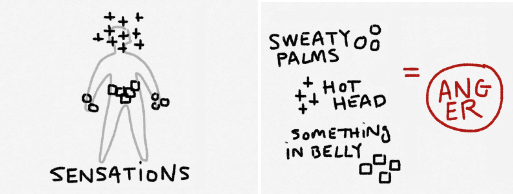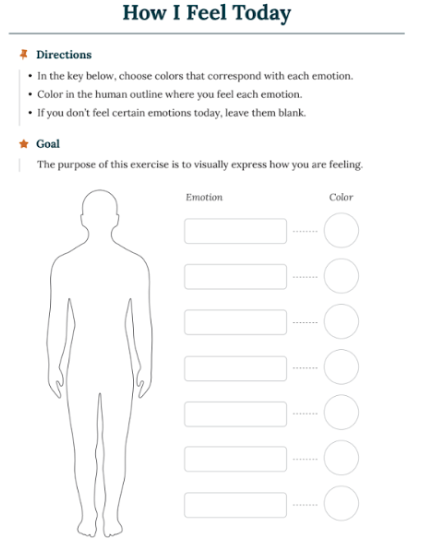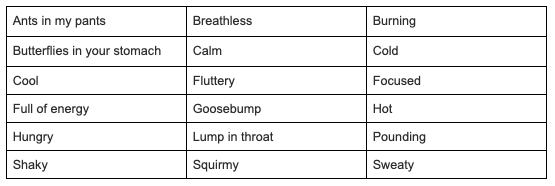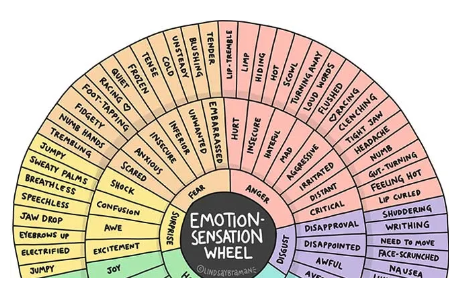Listening to my body: A brief guide to understanding the connection between sensations and feelings
Emotions aren’t only felt in the mind. Our bodies react to our environments just like our brains do, and it can be helpful to connect emotions with body sensations so we can better understand what’s going on within us.
What is Sensation?
Sensation refers to the process in which information is taken and interpreted by the human brain. In order to take in information, the human body is equipped with five senses, which we are taught from childhood: sight, smell, taste, touch, and hearing. Even from a young age, we know to “use our senses” to investigate, enjoy and experience the world around us.

What is Feeling?
Feelings can be understood as mental experiences of body states. Feelings can be of such diversity ranging from love, happiness, contentment to anger, bitterness and even rage. They alert us as to how we feel. If a person is feeling depressed, this feeling makes us aware of our situation. Feelings are connected to so many aspects such as our emotions, thoughts, moods and even sensations. Psychologists believe that feelings are often very subjective. They can be influenced by the memories, personal experiences, and beliefs that people have.

Learning How to Connect Emotions and Body Sensations
By teaching students that emotions are more than abstract concepts and can be perceived as concrete bodily experience, it can help them connect with their body and emotions more confidently. By practising identifying and naming what they are experiencing, they can better figure out what they need.
Below are a few strategies and activities intended on helping children develop an awareness of what their bodies are telling them. A list of sensations and feeling words is also provided below to give students the language to describe what they are experiencing.
I recommend reading the book with your child: Listening to my body: A brief guide to understanding the connection between sensations and feelings by Gabi Garcia, from which some of the information and inspiration in this article is taken.
1) There are many different ways you can continue to support your child to “listen” to their body. You can:
- Build a vocabulary of sensation words. Start with one from the list and build from there.
- Help them connect their sensations and feelings. When they identify a feeling, you can ask questions like “How does your body tell you that you are happy, excited, angry, etc…?” or “Where in your body do you notice the calm, sad, nervous, etc. feeling?”
- Model the process of “listening” to your body and showing care and kindness for yourself.
2) Body scan intervention:

3) Below are a list of sensations that may be helpful to practise identifying and naming what they are experiencing:

4) Below are a list of feeling words that may be helpful to practise identifying and naming what they are experiencing:


References:
Books:
- Listening to my body: A brief guide to understanding the connection between sensations and feelings by Gabi Garcia
Websites:
-
What are Emotions, Feelings and Sensations? Composite or Hierarchical models? (https://emotionallyvague.wordpress.com/2014/10/23/what-are-emotions-feelings-and-sensations-composite-or-hierarchical-models/)
-
100 Art Therapy Ideas and Prompts (https://www.alternativetomeds.com/blog/art-therapy-ideas/)
-
Learning How to Connect Emotions and Body Sensations (https://www.hope-wellness.com/blog/learning-how-to-connect-emotions-and-body-sensations)
-
Difference Between Sensation and Feeling (https://www.differencebetween.com/difference-between-sensation-and-vs-feeling/)


